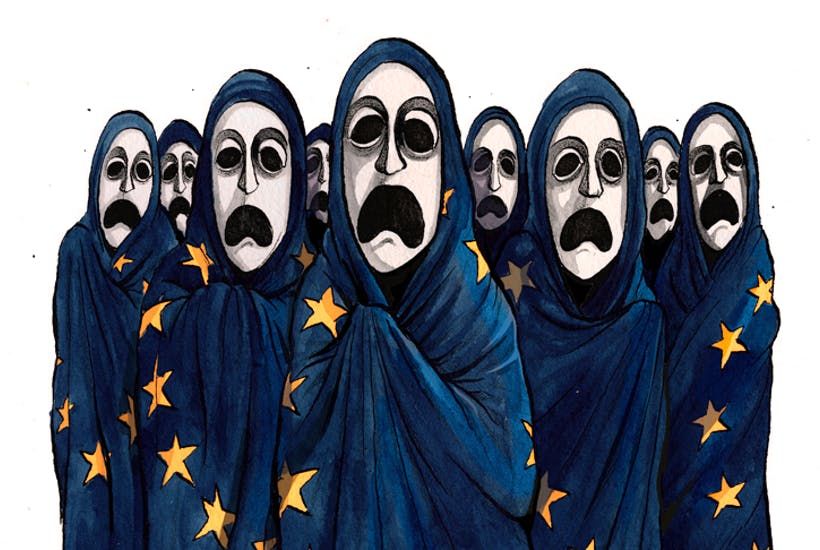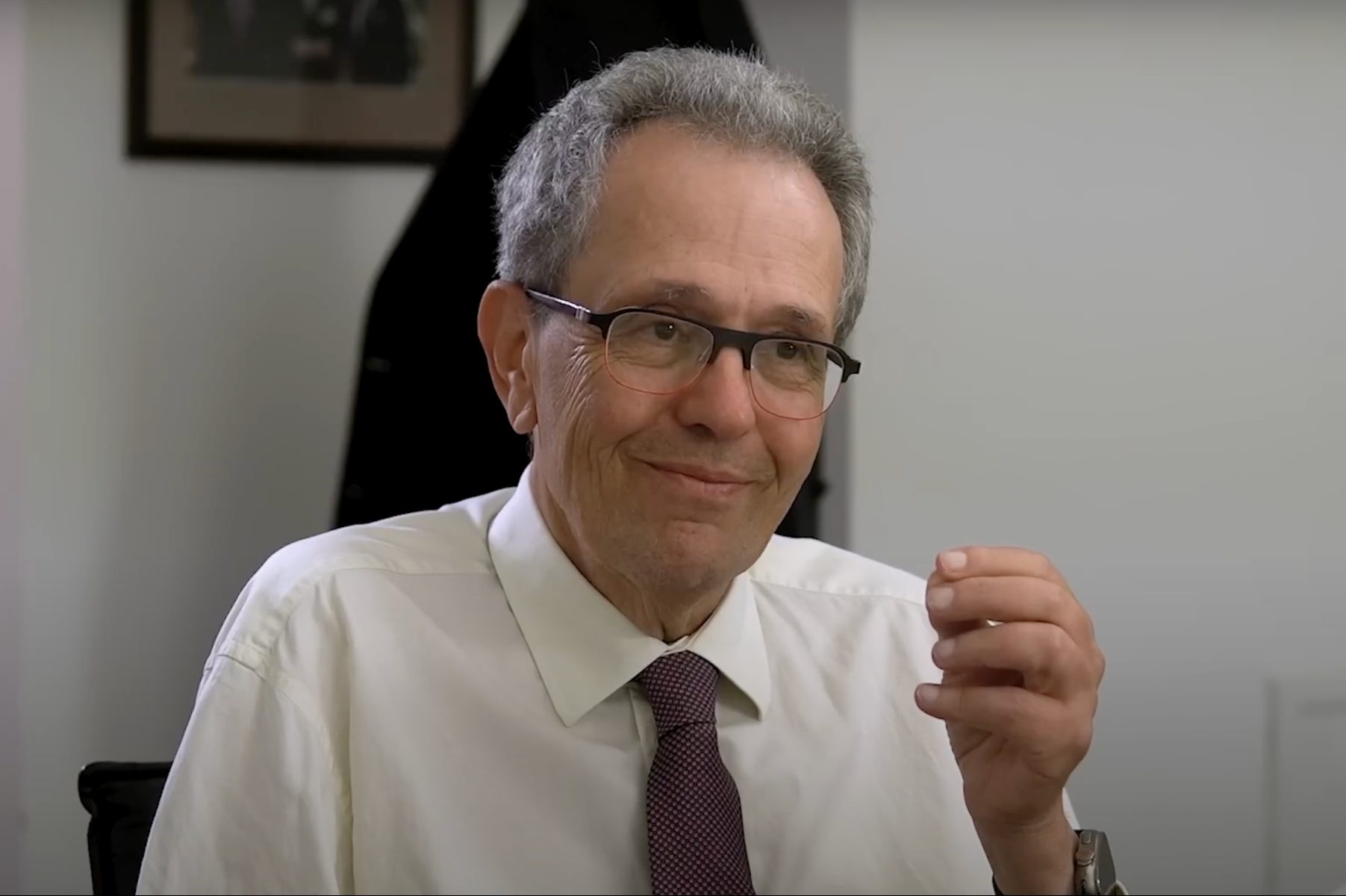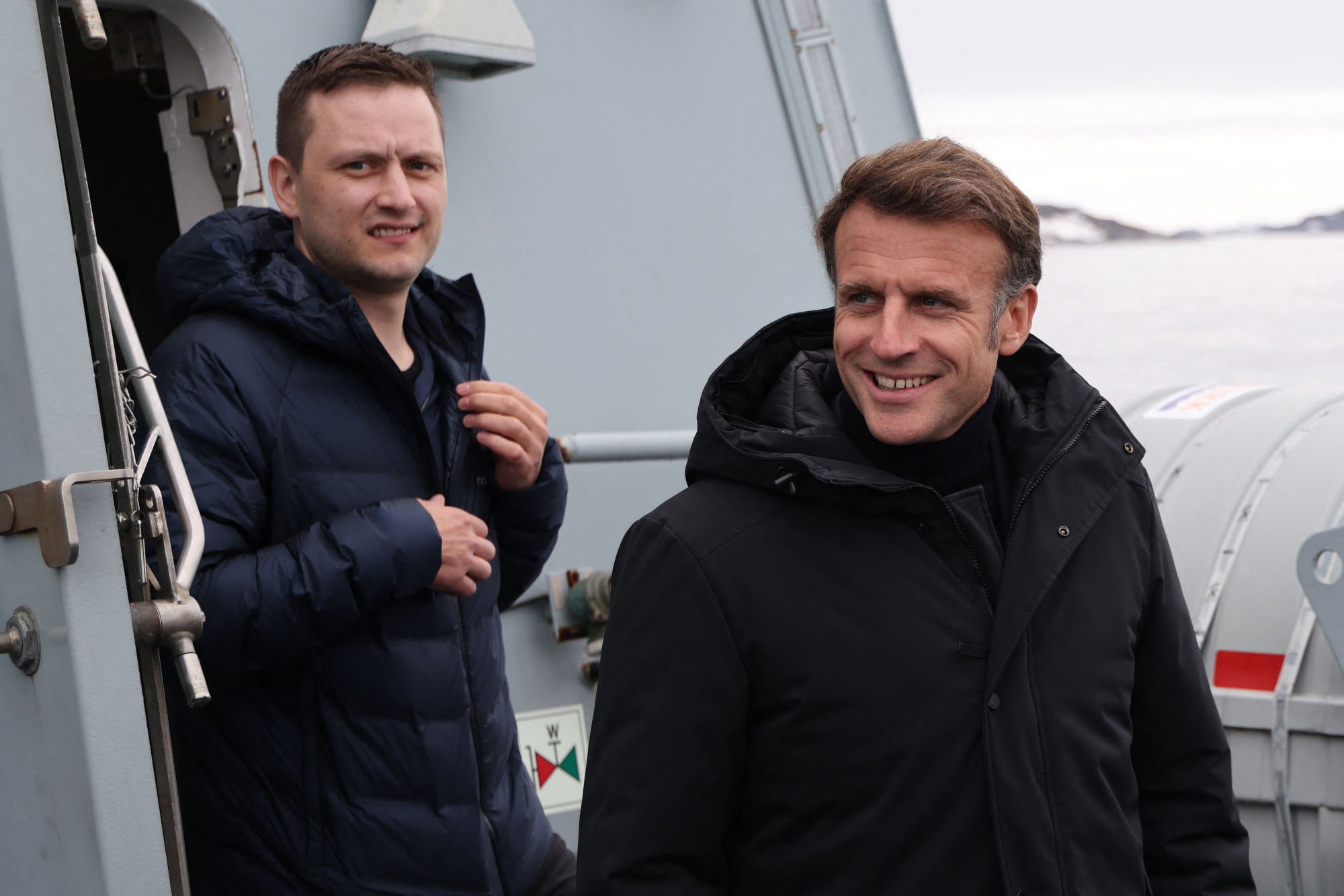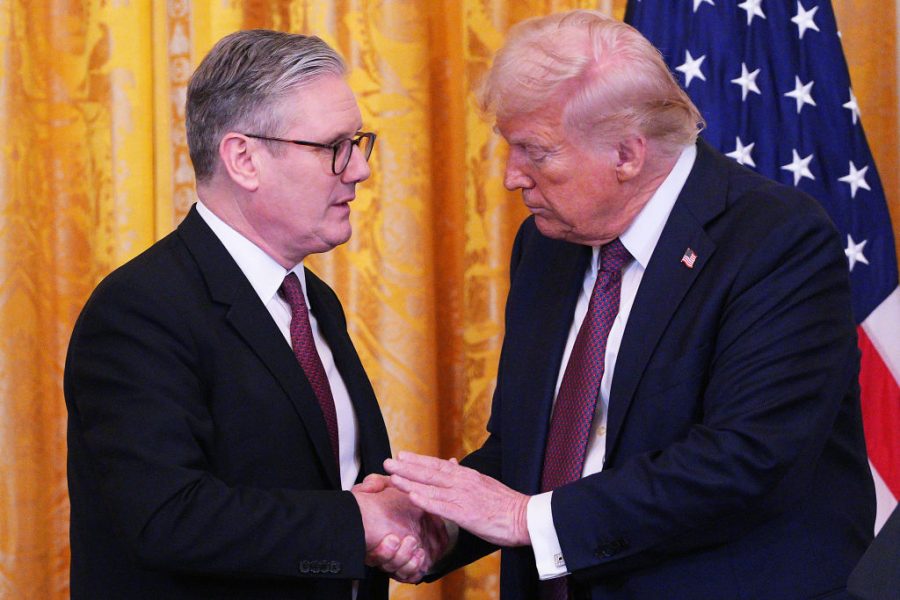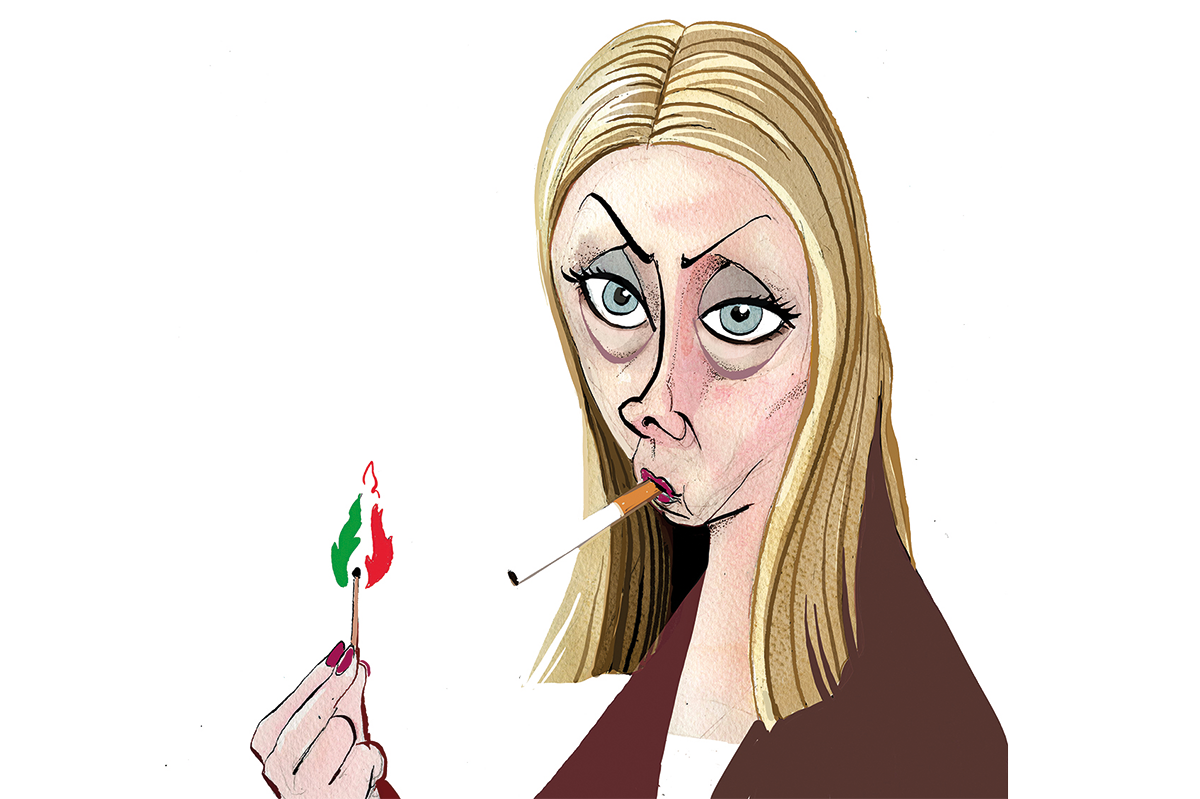The EU has never been a serious global foreign policy player. Without a European army or a meaningful defense pact, the pretense of a Common Foreign and Security Policy is mere sound and fury signifying nothing. Back in 1991, the Gulf War served as a stocktake of the international weakness of the European communities with the Belgian foreign minister lamenting Europe’s position as ‘an economic giant, a political pygmy and a military worm.’ If anything that position has worsened today with China on the cusp of overtaking the EU economically. The global pandemic — in which Europe has been severely affected — is shaping up as another stock-take of where the EU’s vital international interests really lie.
Habitually the EU’s international posturing is less than the sum of its parts, as member state differences undermine even the flimsiest claims to collective policy. President Macron’s infamous attack on Nato as ‘brain dead’ was a perfect example of a member state shaking even a founding principle of the European communities: a commitment to the USA and the Atlantic Alliance. Annoyance in Berlin and central and eastern European capitals was icily contained.The problem for the EU after Brexit is that it is left with just one serious international power — France — with a real army and strategic nuclear weapons whose ambition to speak for the EU is almost unbound. Witness President Macron’s active interventionism — often in the name of the EU but often without prior consent — in Libya, Syria, Iran, Lebanon, the eastern Mediterranean and now Belarus and Nagorno-Karabakh. With France’s history of Gaullist anti-Americanism and unilateralism dating back to the war — which plays well to a domestic audience — one can understand why the EU wishes so strongly to maintain its foreign and defense ties with the UK. One wonders how things will be next year when Chancellor Angela Merkel stands down leaving Macron unbridled.The EU is internationally adrift and in search of an anchor. This may be the explanation for the president of the EU’s surprising speech to the United Nations General Assembly last week proclaiming the EU’s core commitment to the United States: ‘We are deeply connected with the United States. We share ideals, values and a mutual affection that have been strengthened through the trials of history. They remain embodied today in a vital transatlantic alliance.’
[special_offer]
What lies behind this bold statement that may have dodged Quai d’Orsay and Elysée eyes?It could simply be an attempt to hedge bets for the outcome of the US elections. But it feels more like the result of a pragmatic stock-take of the current state of world affairs. Geopolitically, Europe’s backyard is home to dangerous flash-points: on its eastern flank an unloved Russia bitter at Nato encirclement; a wayward and expansionist Turkey in the eastern Mediterranean with migration as a bargaining chip; an unstable southern Mediterranean rim atop sub-Saharan failing states like Mali at the mercy of Islamic terrorist armies that 5,000 French troops cannot hold back and that could unleash migration to Europe on an unprecedented scale. Meanwhile, geo-strategically the EU has belatedly recognized that China’s economic rise threatens EU prosperity and influence and which, in the EU president’s words, the EU ‘is determined to rebalance’. The EU’s tinderbox surroundings are making their mark on member states and underlining a growing sense of EU isolation. For all the talk of the US pivoting to the Pacific and French denigration of the Atlantic Alliance, the United States is the only serious diplomatic and military ally the EU possesses — most EU members know that. Even Macron is conscious that no serious EU collective military force will see the light of day within the next two decades. Consequently, as the president of the EU recognized with his talk of shared values and the trials of history embodied in a ‘vital transatlantic alliance’, that is the only show in town. Self-awareness is a step in the right direction. What is required now is for member states to demonstrate their commitment by shouldering their side of Nato’s financial burden. And for them to constrain an overexcited French president.This article was originally published onThe Spectator’s UK website.



